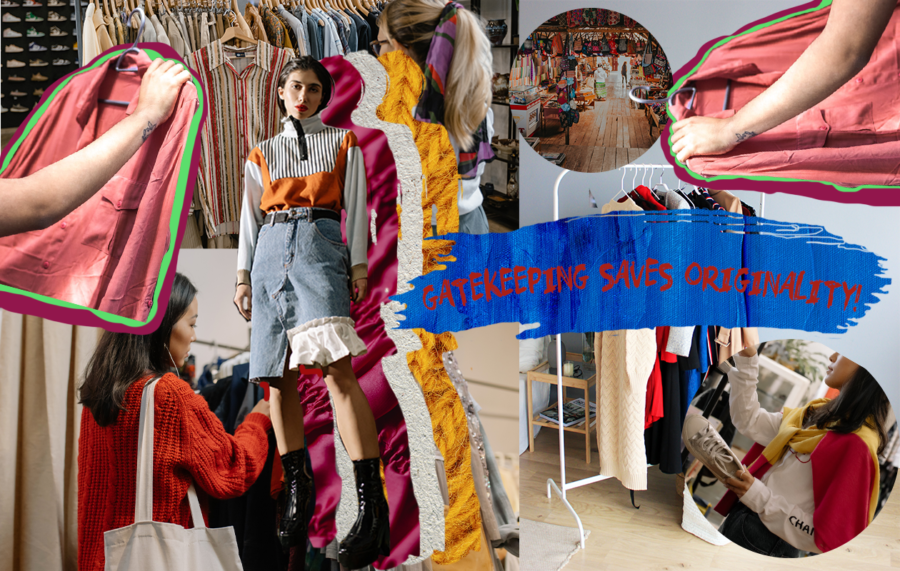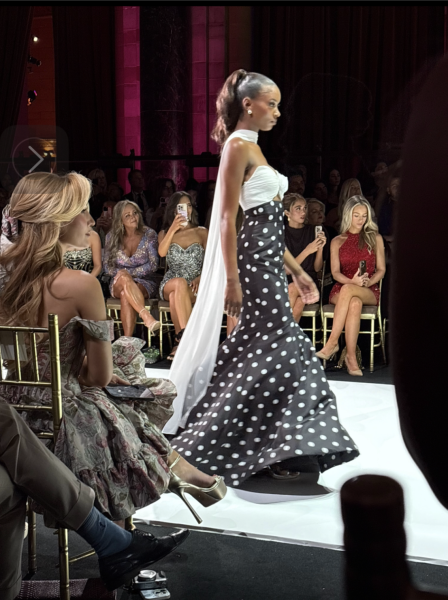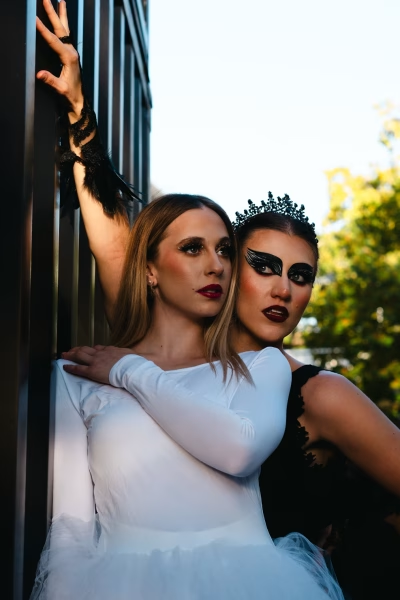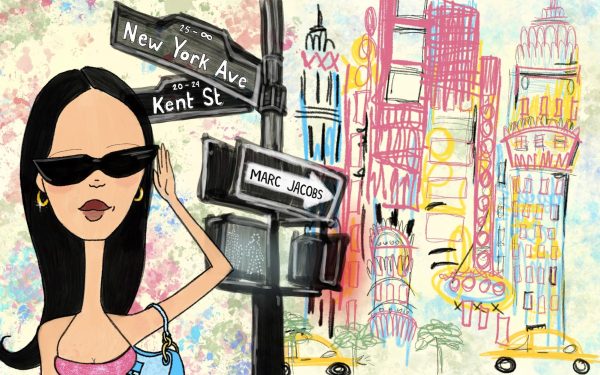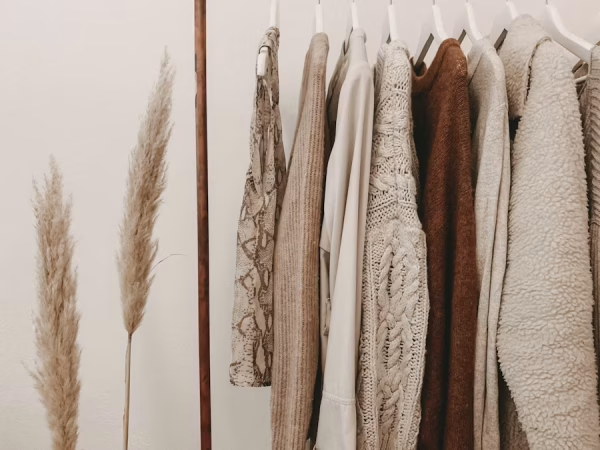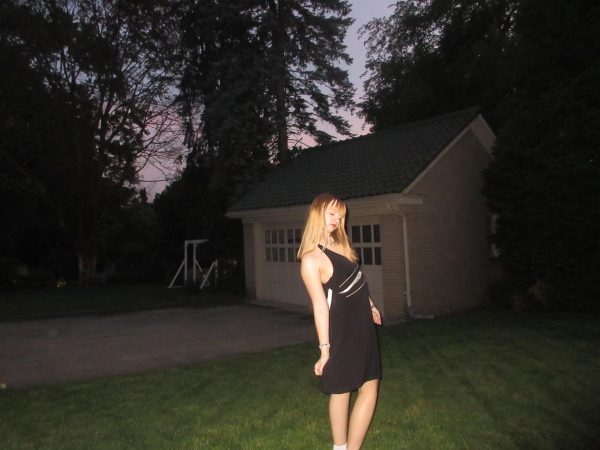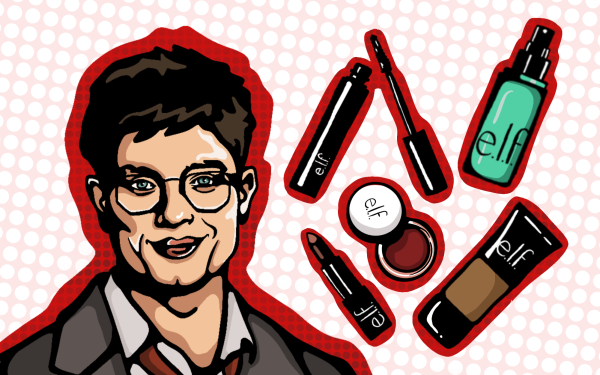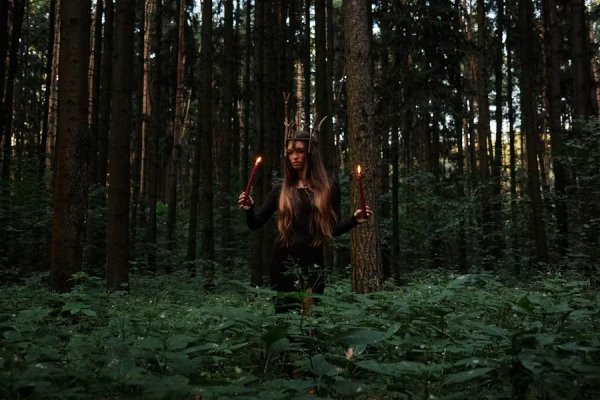could gatekeeping positively impact the future of fashion?
In this age of social media and sharing, disclosing the product information about our newest outfits seems like nothing out of the ordinary. Most viral videos and popular Instagram posts host thousands of comments of people asking where anything from clothes to shoes to household items are from and for how much. But what is this constant exchange of brands doing to fashion and the fashion cycle? Should we start gatekeeping anything and everything from what we’re wearing to our latest lifestyle regimens, or should we continue operating on an ask and you shall receive basis?
Laini Ozark, a fashion influencer with more than 274,000 subscribers on YouTube, addressed this issue and shared her opinion on the “art of gatekeeping” in her YouTube video titled “why i love gatekeeping fashion (am i just a b***?)” In this video, she offers a valuable and important perspective on how gatekeeping could positively impact the future of fashion, despite “gatekeeper” usually being used to describe someone who maliciously keeps their style secrets to themselves.
But what exactly is gatekeeping? According to Cambridge Dictionary, “gatekeeping is the activity of trying to control who gets particular resources, power, or opportunities, and who does not.” Applied to fashion, gatekeeping is keeping where you got your outfit a secret, and it usually only occurs in an online sense.
Objectively speaking, and Ozark also recognizes this in her title, gatekeeping can come across as standoffish and rude. After all, fashion is about being inspired by others, and sharing fashion is a good first step in making it accessible. In an interview with Sabukaru Online, actor, model and influencer Luka Sabbat voiced his irritation at gatekeeping in the fashion world. “I’m tired of people gatekeeping fashion as if it’s not public knowledge,” he said. “Stop being too cool.”
While some people blatantly ignore comments asking where something is from, others will willingly share to the point of exhaustion. One of Ozark’s main points is the constant sharing of exact items has accelerated the lifecycle of certain trends. A good example of this is the House of Sunny Hockney Dress, which used to be the next best thing. Who’s to say the same thing won’t happen to the Skims Long Black Slip Dress, the UGG Ultra Mini Platform Boot or the Stanley Quencher cup?
Ozark also points out that more gatekeeping would diversify the marketplace and decrease the amount of brands producing dupes of the exact same thing. As any product gains mass popularity through constant resharing, other retailers, particularly Amazon, begin to offer strikingly similar versions that are cheaper and of poorer quality. While this makes trends more accessible, it can also lead to overconsumption and massive amounts of waste when the trend eventually goes out of style.
One of Ozark’s last and best points is that sharing outfit details takes away, as she phrases it, “the thrill of the hunt.” She compares the gratifying high of thrifting your own version of an item, one you’ve been searching for and eagerly anticipating you’ll find, to the anticlimactic and short-lived excitement of buying the exact same pieces of the exact same outfit of any influencer. Even if you’re just using the reverse image Google or Pinterest search to find it, taking the time to find a product, particularly a version of it that is unique to you, will make you value it more and keep it in your wardrobe for longer.
Scientifically, the process of being rewarded for searching for information is known as delayed reward or gratification, and it trains our brains to recognize “it is ok to wait to get something good.” When apps like TikTok easily allow us to constantly buy and immediately gratify our wants, it inhibits the development of this process and conditions our brains to seek out more instant rewards. Taking more time to find and decide what clothes we want could ultimately help us make more responsible purchasing decisions.
Ozark’s views on gatekeeping are undeniable and if consumers stopped greedily asking for links to everything they see, we’d all develop more authentic styles and curated wardrobes. Her video helps point out the other perspective of gatekeeping, which is someone who, despite the stereotype, doesn’t mean to come across as rude or “too cool” to share their fashion secrets.
If you’re on the fence about gatekeeping or want to hear her entire argument, I totally recommend watching Ozark’s entire YouTube video. Click here to watch.
Support Student Media
Hi! I’m Catie Pusateri, A Magazine’s editor-in-chief. My staff and I are committed to bringing you the most important and entertaining news from the realms of fashion, beauty and culture. We are full-time students and hard-working journalists. While we get support from the student media fee and earned revenue such as advertising, both of those continue to decline. Your generous gift of any amount will help enhance our student experience as we grow into working professionals. Please go here to donate to A Magazine.

